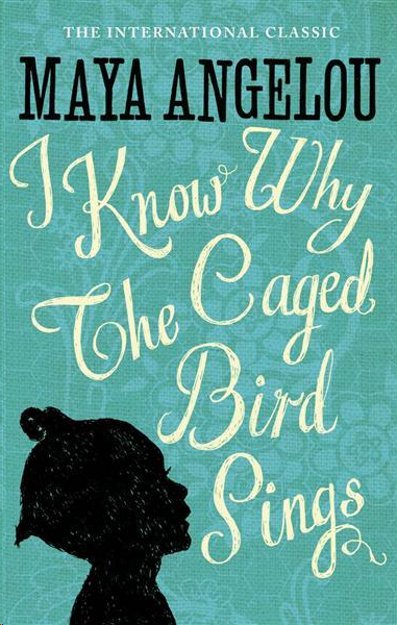Remembering Maya Angelou

From The Root and reprinted by our content partner New America Media:
One of the United States' most prolific and beloved authors and poets has died at the age of 86. Maya Angelou was a Renaissance woman whose life inspired six autobiographies, including her internationally celebrated first memoir, I Know Why the Caged Bird Sings.
Angelou was found unresponsive in her Winston-Salem, N.C., home. Her death comes just days after she canceled an appearance in which she was to be honored at the Major League Baseball Beacon Awards luncheon in Houston.
Born Marguerite Annie Johnson in St. Louis on April 4, 1928, she was 3 years old when she and her brother Bailey were sent to live with their grandmother in Stamps, Ark., after their parents divorced. In that small town, she saw the evil of racial discrimination as well as the richness and faith of African-American life, both of which would play critical roles in her life and writing.
Because of a speech impairment, Bailey struggled to pronounce his sister's name. He often called her "My" for "my sister." After reading a story about the Maya Indians, he began to call her "Maya"—an appellation that would stay with her and form part of her professional name. (She derived the second half of it from a former husband, Anastasios Angelopulos, a Greek sailor whom she married in 1952.)
At the age of 8, she was sexually molested by her mother's boyfriend during a visit to Chicago. At the time, she could only tell her brother about what had happened. She would later learn that an uncle who found out about the assault killed her attacker. As a result she stopped speaking for five years because she thought that her words had caused the death.
By the time she spoke again, in 1941, the young teenager and her brother were living with their mother in San Francisco. Angelou excelled in the arts, winning a scholarship to study dance and drama at the Labor School. But at 14 she dropped out to become the city's first black female cable-car conductor. Angelou returned to high school at 16, but she became pregnant her senior year and graduated just a few weeks before giving birth to her son, Guy. In her second autobiography, Gather Together in My Name, Angelou describes leaving her mother's home to forge an independent life and raise her infant son. She supported the two of them by working as a waitress and cook. But she also got caught up in some difficult circumstances, working as a madam and prostitute for a short stint. She also briefly struggled with drug addiction.
Yet she didn't abandon the arts. In 1954 and 1955, Angelou toured Europe with the production of the opera “Porgy and Bess.” She studied with modern-dance pioneer Martha Graham and danced with Alvin Ailey. In 1957 she recorded the album “Calypso Lady,” in which she sang her own compositions.
Angelou moved to New York in 1958 and began to concentrate on her writing, joining the Harlem Writers Guild and becoming friends with writers such as James Baldwin. She also performed off-Broadway and wrote and performed in a benefit for the Southern Christian Leadership Conference (SCLC) with actor Godfrey Cambridge.

She left New York in 1960 and headed to Cairo with Guy and her husband, South African civil rights activist Vusumzi Make. The family moved to Ghana the following year, and Angelou taught at the University of Ghana's School of Music and Drama. She also worked as an editor and writer. (She wrote about her experiences in Ghana in her fifth autobiography, All God's Children Need Traveling Shoes.) While living abroad, she mastered French, Spanish, Italian, Arabic and the West African language Fante.
Angelou met Malcolm X during his visit to Ghana and returned stateside in 1964 to help him set up the Organization of Afro-American Unity. He was assassinated soon after her arrival, however, and the fledgling organization soon closed. Focusing on the civil rights movement, she became good friends with Martin Luther King Jr., who asked her to be northern coordinator for the SCLC. She was devastated by the loss of another friend when King was assassinated, on her birthday, in 1968.
Angelou found healing in writing. I Know Why the Caged Bird Sings, published in 1970, followed her life through the birth of her son. While its tremendous success raised her literary profile, the book's candid treatment of the traumas of racism and being raped as a child made it a controversial presence in school curricula and on library shelves.
She would go on to publish more than 30 works of verse, nonfiction and fiction, including the poetry collections Just Give Me a Cool Drink of Water 'Fore I Diiie (1971), which was nominated for a Pulitzer Prize; And Still I Rise (1978); and Phenomenal Woman: Four Poems Celebrating Women (1995). Angelou also tackled film and television. She wrote the Pulitzer Prize-nominated screenplay “Georgia, Georgia” in 1972 and penned the script for the TV drama “Sister, Sister”—starring Diahann Carroll, Rosalind Cash and Irene Cara—in 1982. In 1996 Angelou directed the feature film Down in the Delta.
A recipient of the National Medal of Arts in 2000 and the Lincoln Medal in 2008, Angelou also received more than 30 honorary degrees. In 1993 President Bill Clinton asked her to compose a poem for his inauguration. Her reading of “On the Pulse of Morning,” broadcast internationally, was the first recital by a poet at a presidential inauguration since Robert Frost read "The Gift Outright" at John F. Kennedy's inauguration in 1961.
Monée Fields-White is a freelance writer and editor based in Los Angeles.
From The Root and reprinted by our content partner New America Media.





























































































































































































































































































































